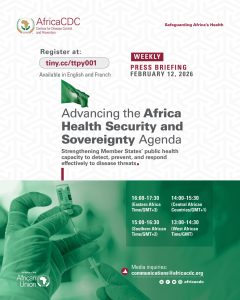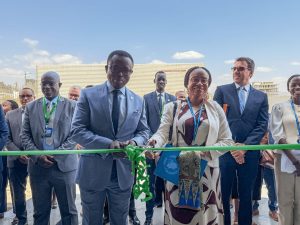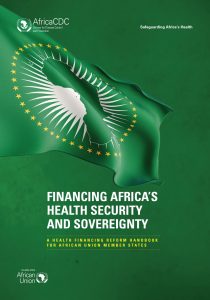Burundi has revised and approved its Mpox Response Plan and Marburg-Ebola Preparedness Plan, signaling a high-level commitment to strengthening outbreak response efforts in the country.
A validation meeting organized by the Ministry of Health on March 11 brought together a diverse group of development partners and key stakeholders. During the meeting, the two plans were meticulously assessed and thoroughly debated. They are now set for dissemination to relevant partners for immediate implementation.
Earlier, on 24 January, a delegation from Africa CDC, led by Dr. Ngashi Ngongo—Technical Director and Continental Coordinator for Mpox—visited Burundi and met with the Minister of Health, Dr. Lydwine Baradahana. The visit was part of the country’s Mpox Intra-Action Review (IAR), a critical process to document and assess the national response to the outbreak.
“We acknowledge and commend the strategies Burundi has implemented for the prevention and management of Mpox cases. These measures are crucial for containing the virus,” said Dr. Ngongo during the field visit. He emphasized Africa CDC’s commitment to intensifying support in the five districts most affected by Mpox.
“We are dedicated to bolstering the response in these areas to reduce the spread and impact of the disease,” he added. Africa CDC also pledged support for strengthening surveillance, prevention, and response mechanisms for potential Marburg cases. “It is vital that we remain vigilant and prepared for any emerging threat like Marburg,” Dr. Ngongo noted.
The Mpox Intra-Action Review was supported by the continental Incident Management Team, which includes representatives from WHO, the World Bank, and UNICEF. It led to significant milestones, including the restructuring of the response pillars. New components added to the national response plan include Research and Innovation, Continuity of Essential Health Services, and Vaccination.
During the visit, Africa CDC Director-General Dr. Jean Kaseya remarked that the revised plan is a milestone worth celebrating. “Our team is working closely with the Government of Burundi to create the conditions necessary to receive vaccines based on the vaccination plan now in place—and to kick off the vaccination campaign very soon,” he said.
According to a recent Africa CDC update, of the 3,242 confirmed Mpox cases reported across six districts, Bujumbura (North, South, and Centre), Gitega, Isare, and Cibitoke accounted for 81% of the total. Bujumbura North is the most affected, with 1,237 cases—38.2% of the national total. The country continues to face challenges including insufficient isolation units, low case management capacity, and limited resources for investigating alerts. In the last three weeks alone, 15 out of 46 affected districts reported new confirmed cases.
Burundi’s outbreak response was further strengthened when Africa CDC, in collaboration with the Ministry of Health and the Public Health Emergency Operations Centre, organized a three-day training for 200 Community Health Workers from March 12–15, 2025.
The training, conducted in Bujumbura and Gitega, specifically targeted five hotspot districts: Bujumbura North, South, Centre, Isare, and Gitega.
“The primary aim of this training was to strengthen critical areas such as active case search, risk communication and community engagement, infection prevention and control, community-based surveillance, and contact tracing,” said Thaddee Niyoyitungira, Public Health Fellow and Technical Officer in the Disease Control and Prevention Division at Africa CDC.
Following the training, Community Health Workers are being deployed to their respective communities to begin work, contributing significantly to Mpox containment and management efforts. In December 2024, Africa CDC donated diagnostic kits worth $300,000 USD to the Ministry of Health in Burundi. This donation is aiding in the decentralization of Mpox screening, in line with the country’s National Response Plan.







